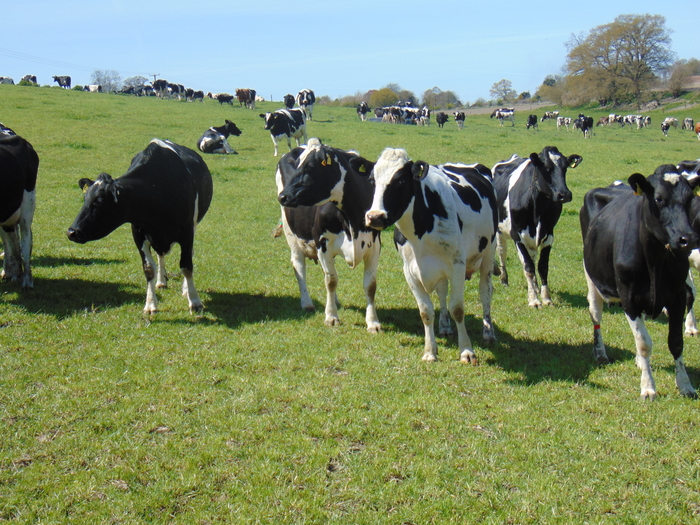A new Autumn Calving Index (£ACI) has been developed by AHDB Dairy to help producers breed cattle suited to autumn block calving systems.
Emphasising herd fertility and milk volume, £ACI takes into account the costs of feeding for winter milk production and the higher milk price per litre received.
Using either £ACI or the existing Profitable Lifetime Index (£PLI) or Spring Calving Index (£SCI), farmers can now make bespoke breeding decisions aligned with their calving pattern.
Marco Winters, head of animal genetics with AHDB Dairy, says: “The index has been developed in response to demand from farmers and the industry and is also a reflection of the slight increase across the UK in autumn block calving.
“The difference between the three indexes is subtle but we believe the new £ACI will fulfil the requirements of those autumn block calving producers who feel they need a more bespoke index,” he says.
“However, for the herds which calve throughout the year, the £PLI remains their recommended index,” he advises. “And producers which have a split calving block in spring and autumn may be best advised to use the respective seasonal index when breeding each block.”
AHDB’s focus on calving patterns is a key part of their optimal dairy systems programme, which is helping farmers lower costs and increase efficiencies by focusing on all year round or block calving.
Like the existing £PLI and £SCI, the new £ACI represents the additional profit a bull is expected to transmit to his daughters (on average), compared with a bull whose index is zero.
And like the £SCI (but unlike £PLI), it is an across-breed index so it will be of particular benefit to autumn calving producers who are using more than one breed.
Alongside its emphasis on female fertility, the £ACI will promote milk quality, help reduce maintenance costs, improve udder health, promote easier calving and improve functional type (legs, feet and udders).
Although the same traits are used in all three of the UK’s economic indexes, they are weighted slightly differently in each.
“Producers breeding replacements for autumn calving herds tend to require more milk volume than those with spring calvers,” says Mr Winters. “They also tend to be more focussed on weight of fat and protein than percentages, and also want to prioritise fertility.
“All three systems have similar strong requirements for improving mastitis, lameness and lifespan,” he adds.
The relative importance of traits in the UK’s three economic indexes is shown in the bar chart (figure 1).
“Whatever index is favoured – whether £PLI, £SCI or £ACI – it is always recommended for use as an initial ranking tool for dairy sires,” he says. “After that, producers should ideally drill down and look at the index’s individual components to improve the traits most important in their own herds.”
This can be done by any producer on the AHDB website, where bull lists can be re-ranked by producers on any published trait.
The launch of the £ACI will coincide with the dairy bull genetic index run, due to be published on 7 August 2018.
Please visit the genetics and breeding section at dairy.ahdb.org.uk for sire lists. Producers who milk record can also apply for their Herd Genetic Report on the website, allowing them to monitor their own herds’ genetic improvement.
Autumn Calving Index for breeding dairy replacements
- £ACI will be launched by AHDB in August 2018
- Responds to slight national trend towards autumn block calving
- Designed for herds calving in a 12-week block or less
- Can be used as a comparison across different dairy breeds
- Promotes a higher weight of milk, fat and protein than £SCI
- Retains strong emphasis on health and fertility
- Producers should continue to use £PLI for year-round calving herds
- £SCI remains suitable for grazing-based spring block calving herds
- £PLI, £SCI and £ACI should not be compared with each other


